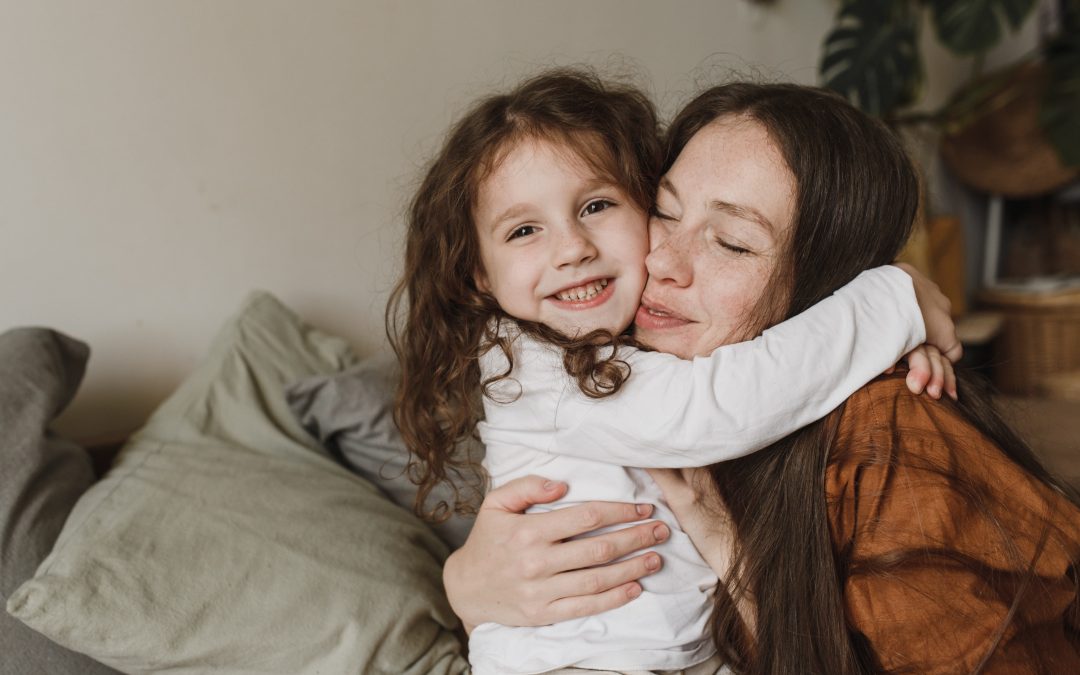Every parent has been there. The kids are playing nicely in the next room. Everything is going fine. Suddenly, you hear the unmistakable sounds of escalating emotions, and a few minutes later at least one child comes to you in tears. Regardless of what actually happened, you will likely hear some version of, “He started it!”
“Did not!”
“Did too!”
And when you aren’t playing referee in the “who started it” game, you’re running into those pesky “not me” gremlins who show up when there’s an empty milk carton in the fridge, an apple with one bite taken out of it, or sinkful full of toothpaste.
As a parent, teaching our kids to take responsibility for their actions can be challenging. Kids struggle with this for the same reason adults do. Getting “in trouble” is not fun. Stepping up and admitting when we’ve made a mistake takes courage, especially considering we are wired as humans to avoid negative experiences as much as possible. Kids may naturally veer in the direction of self-preservation when faced with a troubling circumstance, like an angry parent questioning who did what. So what can we do to support them?
Our team of professionals at Simi Psychological Group provides a wide array of mental health services and resources to help parents along their journey. From neurological testing to therapy online, our team of dedicated experts in Thousand Oaks is here to help. Here are 7 key ways you can help your child take responsibility for their choices, actions, and behaviors.
Make it safe. Your child is more likely to come to you when they know it’s emotionally safe to do so. That means keeping your cool. Take some deep breaths and respond calmly. Letting emotions take over in the heat of the moment only escalates an already tense situation, so be mindful of your tone of voice and the way in which you are speaking to your child. Acknowledge and validate your child in difficult moments. Letting them know you’re proud of them for telling the truth or coming forward is a huge incentive for them to do more of that.
Be clear and consistent. When parents set very clear expectations for behavior and there is consistency within the household or across households, it’s easier for kids to follow the rules. Kids need to understand what’s expected of them in certain situations. For example, you might talk to them about “inside voices” versus “outside voices.” Or the differences between eating out at a nice restaurant versus enjoying a family meal at home. It’s especially important for two household families to be on the same page in terms of rules and expectations. It’s terribly confusing for a child when they can “get away with” a behavior at one household but get into trouble for that same behavior at another, or when the routine is drastically different from one household to the other. Kids do best when there is clarity, structure, and consistency.
Give them tools. Obviously, kids don’t come into the world knowing how to manage their emotions or resolve conflict. It’s our job as parents to teach them these skills over time. Teach your child how to identify and label their emotions. Help them develop healthy coping skills when they are experiencing big emotions. When they come to you crying because someone hurt their feelings on the playground, or they lash out (as kids inevitably do) and perhaps hit the toddler next to them for not sharing a toy, or they are the ones not sharing the toy…these are what we call “teachable moments.” When these very normal moments come up, you have the opportunity to teach them emotional regulation skills and help them use their words.
Skip the lecture. In general, the more we talk “at” our kids, the less they hear. Keep your words simple and to the point. Going on and on doesn’t help. Make sure that whatever consequence you give your child is something you can actually enforce and live with, and that the consequence “fits the crime.” Taking away video game privileges for a month because your kiddo ran into the house with muddy shoes, for example, is an overreaction. Asking them to clean it up (or help you clean it up if they’re a little) is a more natural, logical, and immediate consequence. When possible and appropriate, get them involved in finding the solution or solving the problem, or coming up with an appropriate consequence. This helps them take accountability and be more involved in making amends.
Model taking responsibility. One of the best things we can do as parents is model the behaviors we want to encourage in our child. Show your child what it looks like to apologize or take responsibility. “Mommy was pretty cranky this morning. I’m sorry that I snapped at you.” “My goodness. I forgot to wash the shirt you asked me to wash for school today. I’m very sorry I let you down. What can I do to make it up to you?” This demonstrates that it’s ok to make mistakes, and how to behave when we make those mistakes.
Show compassion. Acknowledge how hard it is to admit when we’re wrong. Validate for your child that it’s natural to want to shrink and hide when we’ve made a mistake, but that doing so really only makes things worse in the end. Remind your child that every single human on earth makes mistakes and that mistakes are how we learn. Make sure you separate your child’s behavior from his or her “character.” In other words, your child made a bad choice, but he’s not a bad kid.
Stop rescuing. One of the best, and often hardest, ways of teaching our child responsibility is to allow them to experience natural consequences. For example, imagine this scenario: You’ve reminded your child repeatedly to grab their baseball shoes for practice, you hop in the car, you drive the 20 minutes to the field, only to have your child tell you they forgot their shoes. What now? You can yell at them, lecture them about responsibility, and go on and on about how you reminded them 4 times to get their shoes. You can grumble and tell them to go ahead and start practice while you go back and get the shoes for them. Or, ideally, you can calmly (and without sarcasm) say something like, “Oh man. That really stinks. Let’s find your coach and let them know you’ll have to practice without your baseball cleats today.” For school age kids, consider offering one “save” for the year, meaning you will bring them whatever it is they forgot (lunch money, sports equipment, homework) one time. Once they’ve used up their one “rescue” for the year, they’re on their own. Natural consequences are wonderful motivators.
Being a parent is one of the most challenging, and one of the most rewarding, roles we’ll ever take on. It’s full of ups and downs. Remember, there is no such thing as the perfect kid OR the perfect parent, and we’re going to make mistakes. But following these seven tips will help get you and your child off to a great start in accomplishing what every parent wants: happy, healthy, responsible kids.
If you are looking for additional resources and information for parents, reach out to Simi Psychological Group. Our team near the Thousand Oaks area provides support and therapy online for parents and children with trauma, anxiety, and other mental wellness challenges. To speak with one of our licensed professionals, call (805) 842-1994.
Dr. Novak is the group practice owner and licensed psychologist at Simi Psychological Group a therapy practice in Simi Valley, California. Simi Psychological Group offers a variety of services including trauma therapy, couples therapy, anxiety therapy, teen therapy, and more. Simi Psychological Group emphasizes the importance of creating real change by making sure to get to the root of your struggles.





